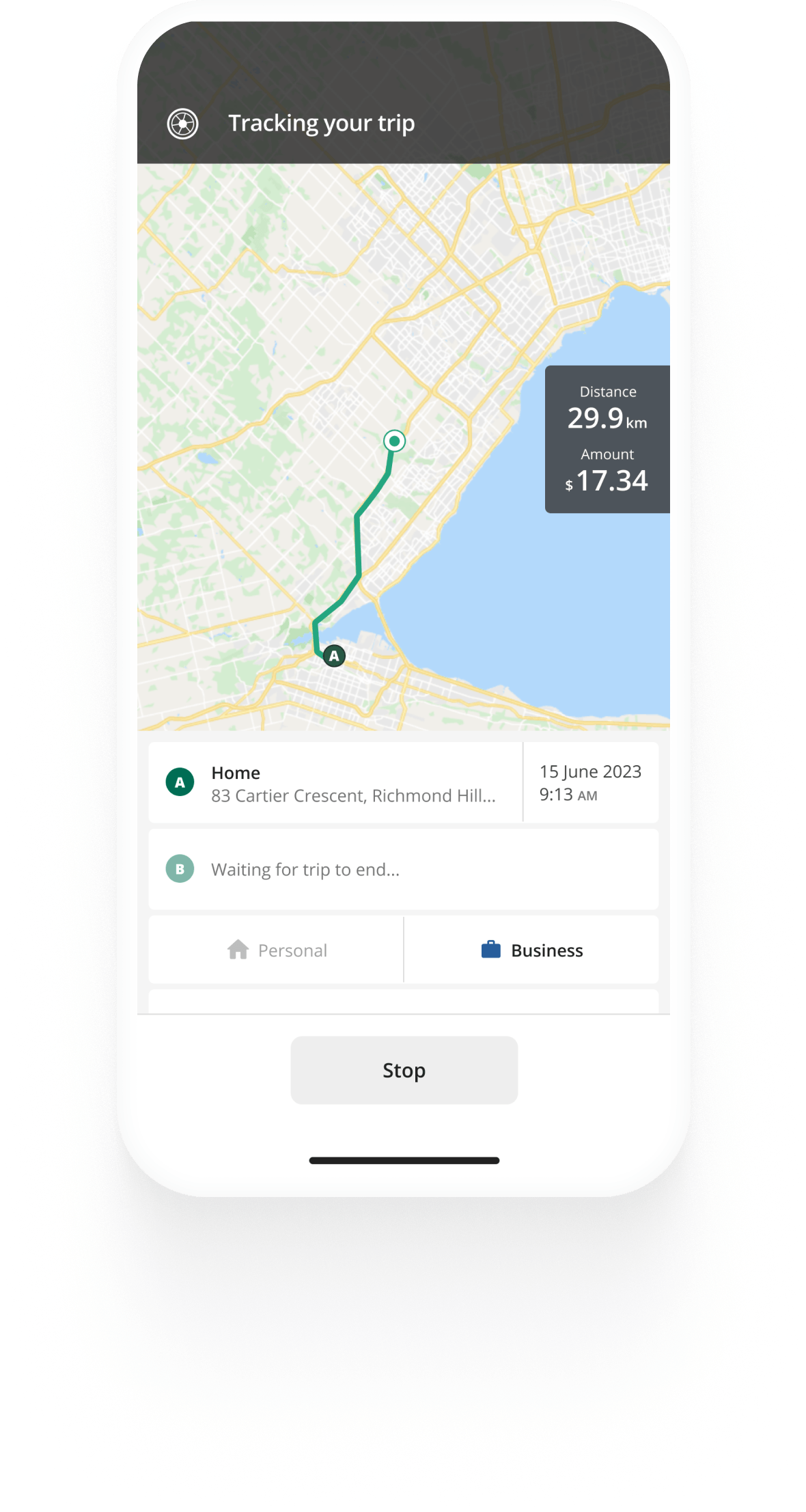Track mileage automatically
Get startedDriver earning potential for Uber, Lyft or other rideshare or delivery services in Canada
In this article, we’ll cover the range of average earnings reported by Uber and Lyft drivers, as well as Uber Eats, SkipTheDishes, DoorDash, and Instacart delivery drivers in Canada. We have collated information from multiple sources to make sure it's representative of actual income. It's intentional that we do not provide completely accurate, down to multiple decimals, information; we mainly intend that you use this article to manage your expectations, not to get an accurate benchmark for your salary.
How much do gig drivers make in Canada?
Scroll down for an overview, read on for the main points.
When it comes to gig driving, you will usually earn more than the minimum wage. Mostly, your earnings come down to how much you work and your experience (you will improve over time as you learn the job). Another thing you gain is pretty good job security; the demand for drivers is continuing to rise globally and that is the case in Canada too.
Before we deep dive into the annual and hourly income earned by the Canadian drivers, you’ll first want to consider both ridesharing and delivery driving.
Rideshare driver income range
We found that rideshare drivers report earning between $38,000 and $65,500 a year as high and low averages. Most of the variance comes from experience, the number of rides completed, and tips received. As we said, the more experienced you get, the better you will also become at especially ridesharing, and that shows in earnings.
Delivery driver income range
We found that delivery drivers make between $31,200 and $51,000 a year as high and low averages. Most of the variance comes with number of trips completed (hours worked) and tips. When first starting out, delivery drivers tend to report higher earnings than rideshare drivers, mainly due to less waiting time between rides and less reliance on tips. However, remember that this range is just an average on both ends: You can surpass this if you take more trips and/or improve in your job.


Track business driving with ease
Trusted by millions of drivers
Automate your logbook Automate your logbook

Automatic mileage tracking and CRA-compliant reporting.
Get started for free Get started for freeTable: Average earning potential with delivery services
If you’ve been contemplating working as a delivery driver but are unsure which company (or companies) to partner with and how much you can earn on average, we’ve got you covered. To make this overview, we've looked at publicly available data from gig drivers in Canada who self-report their earnings.
| Service provider | Average annual earnings | Average hourly rate |
|---|---|---|
| Uber Eats | $43,950 to $51,740 | $17 to $22.5 |
| DoorDash | $40,463 to $62,400 | $15 to $25 |
| SkipTheDishes | $36,000 to $58,000 | $15 to $23.25 |
| Instacart | $49,000 to $72,000 | $19 to $21.50 |
Table: Average earning potential with ridesharing services
Since limited market players (including Uber and Lyft) dominate the rideshare industry in Canada, you really only need to consider those, unless you know a local company in your area.
Let’s take a quick look at how much gig drivers make on an average when driving with Uber and Lyft:
| Service provider | Average annual earnings | Average hourly rate |
|---|---|---|
| Uber | $35,000 to $60,735 | $15 to $31 |
| Lyft | $39,000 to $68,000 | $28.25 to $35 |
In spite of what our table shows, expect to earn roughly the same with Uber and Lyft. Over the last years, drivers have reported higher earnings with Lyft. We expect this to be mainly due to a fair share of the more experienced drivers taking on both Uber and Lyft to maximize their earnings.
Earning components & tax
As a gig-driver, you make money for every ride and/or order you complete. The money deposited in your bank account includes a percentage of the fare paid by your customer, tips, taxes and any surcharge fees that might apply based on the customer’s waiting time in busy locations.
The amount of taxes received per order or trip should be reported and remitted to the CRA when filing your tax return. It’s good to maintain a record of taxes collected on a daily or weekly basis and keep them aside or in a separate account for remittance purposes.
Common expenses that gig-drivers can claim
Gig drivers can write-off vehicle-related expenses against their gross income, and ultimately pay lower taxes. As a gig-driver, you can claim these commonly incurred expenses:
- Fuel costs
- Vehicle registration fees
- Cell phone costs
- Parking and parking fees
- Wear-and-tear of your vehicle (very important)
- Repairs and maintenance costs
To really maximize your income, we have written this guide on doing taxes for Uber (which should serve nicely, even if it is mainly meant for Uber) and this guide for self-employed tax deductions in general (check to see if any apply to you).
FAQ

Tired of logging mileage by hand?
Effortless. CRA-compliant. Liberating.
Gig Drivers' Guide
- GST/HST for Gig Drivers
- Best Mileage Tracking App for Delivery and Rideshare Drivers
- Gig Driving as a Side Hustle
- Gig Driver Earnings
- Uber Tax Guide
- Uber Driver Requirements
- Insurance for Uber Drivers
- DoorDash Tax Guide
- DoorDash Driver Requirements
- Lyft Tax Guide
- Lyft Driver Requirements
- Uber Eats Tax Guide
- Uber Eats Driver Requirements
- SkipTheDishes Driver Requirements
- SkipTheDishes Tax Guide
- Instacart Shopper Requirements in Canada
- Best Delivery App to Work for in Canada
- Renting a Car for Rideshare Drivers
- Ridesharing Apps Like Uber and Lyft
- Best Cars for Uber and Lyft Drivers in Canada